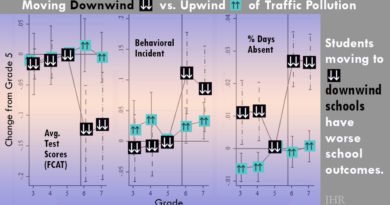Unintended Consequences—How Targeting Schools for Special Benefits in France Can Do More Harm Than Good
Compensatory education policies—policies aimed at offsetting educational inequalities between socially and academically disadvantaged children and more advantaged students—are widely used and represent a significant part of public education spending in many countries. In France, they correspond to about ten percent of the annual spending per pupil. They provide underprivileged schools with additional resources to compensate for social and academic disadvantages. In a new JHR paper, Laurent Davezies (CREST) and Manon Garrouste (University of Lille) propose some evidence to explain why these programs are often not working as intended.
Empirical evaluations of such programs are often deceptive. One main limitation of the research is that it usually focuses on schools and ignores the fact that families adjust their school choices based on the perceived quality of schools.
Davezies and Garrouste consider a French policy that targets very low-achieving and socially disadvantaged junior high schools. Looking at 2006–2007 geocoded data and whether schools were eligible for the program, they compared pupils whose closest school is just above versus just below the eligibility criteria. Because it’s difficult to fully observe school quality, some families used the program as an indicator of poor school quality and sorted themselves out of these schools.
Importantly, the effects are driven by pupils from high socioeconomic backgrounds, who in large numbers avoid schools that benefit from the program and go to private schools instead. This tends to reinforce beneficiary schools’ underachievement and to strengthen social segregation across schools. This could explain why many school-based compensatory policies fail in reducing the educational gap between schools. The authors caution, “When designing school-based compensatory education programs, policy makers should account for such stigma effects.”
Read the full study in The Journal of Human Resources: “More Harm than Good? Sorting Effects in a Compensatory Education Program,” by Laurent Davezies and Manon Garrouste.
***
Laurent Davezies is a researcher at Center for Research in Economics and Statistics (CREST) (laurent.davezies@ensae.fr). Manon Garrouste is an assistant professor at University of Lille, LEM–CNRS (manon.garrouste@univ-lille.fr).



